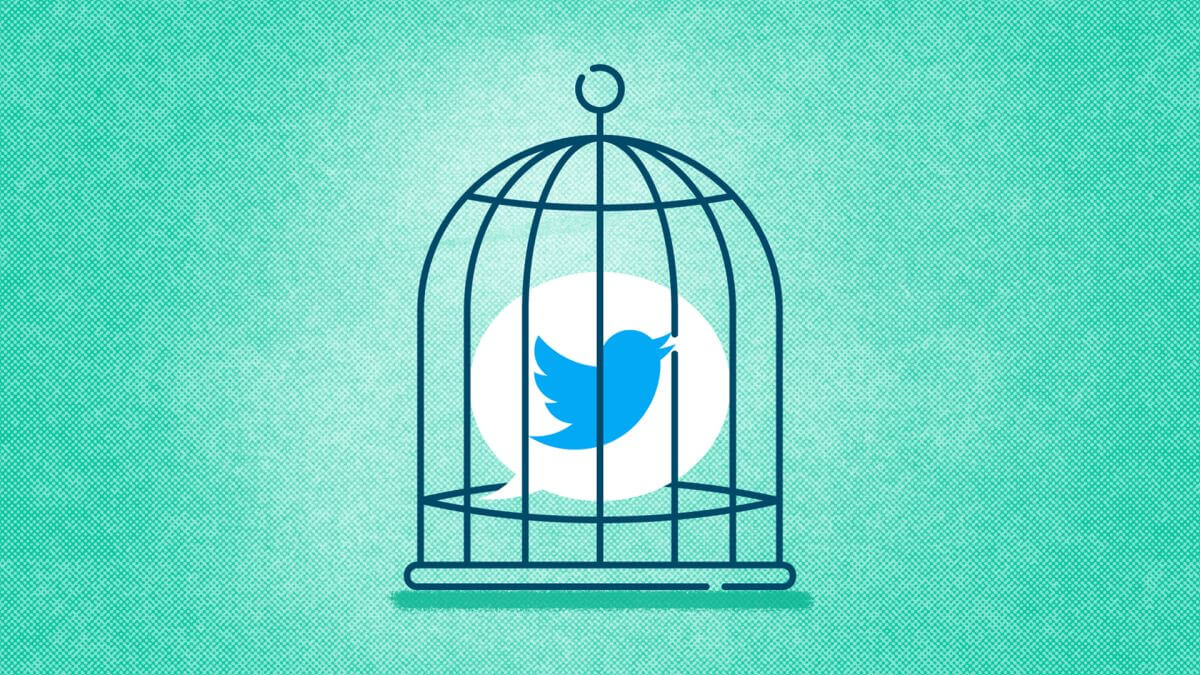On Wednesday, the Indian government lambasted Twitter for failing to comply with its orders under Section 69A of the Information Technology Act, which calls on the social media giant to take down 1,100 accounts for publishing “inflammatory content.” All these accounts have been accused of using the hashtag #FarmerGenocide and supporting the Khalistani separatist movement. The issue was also brought up by the country’s Information Technology Minister, Ravi Shankar Prasad, during the Rajya Sabha session this morning. He said, “We respect social media a lot. It has empowered common people. Social media has a big role in the Digital India Programme. However, if social media is misused to spread fake news, violence then action will be taken.”
However, Twitter refused to follow the order saying, “In keeping with our principles of defencing protected speech and freedom of expression, we have not taken any action on accounts that consist of news media entities, journalists, activists, and politicians. To do so, we believe, would violate their fundamental right to free expression under Indian law.” Nevertheless, Twitter partially complied with the latest government order, which is the second in two weeks, and permanently de-activated 583 of the suggested accounts, which it believed to be clearly participating in “platform manipulation and spam”. Moreover, Twitter also released a statement saying, “Separately, today, we have withheld a portion of the accounts identified in the blocking orders under our Country Withheld Content policy within India only. These accounts continue to be available outside of India.” Yet, the government remains unsatisfied with the fact that Twitter has not successfully complied with the order in its entirety.
Against this backdrop, on Wednesday, Ajay Prakash Sawhney, the Secretary of the Ministry of Electronics and Information Technology (MeitY) met with Twitter’s Vice President Global Public Policy, Monique Meche, and the company’s Deputy General Counsel and Vice President Legal, Jim Baker. During the discussion, the MeitY representative said that while India values freedom of speech, which includes the right to criticise the government, this freedom was “not absolute” and was “subject to reasonable restrictions.” Moreover, Sawhney reassured Twitter of India’s commitment to providing a “conducive business environment”. However, he reiterated that while Twitter can formulate its own rules and guidelines, it “must also respect the Indian laws and democratic institutions”. He further raised concern about Twitter allowing “fake, unverified, anonymous, and automated bot accounts” to function on its platform. Consequently, he raised doubts about the social media giant’s “commitment to transparency and healthy conversation.” In response, the representatives of Twitter “affirmed their commitment towards following Indian laws and rules”, along with their “continuing commitment towards building their services in India.”
In light of these developments, speaking about the Indian government’s recent conflict with the American social media giant, the United States Department of State Spokesperson Ned Price said, “What I would say generally, is that around the world, we are committed to supporting democratic values including freedom of expression. I think when it comes to Twitter’s policies we would have to refer you to Twitter itself.”
Amidst this ongoing conflict, Indian audiences have begun to shift its own homegrown microblogging app, Koo, which was launched in 2020. While this app is a near copy of Twitter, there are some key differences, such as the ability to use Indian languages beyond Hindi and English. As the Indian government and Twitter continue to be at loggerheads, several Indian political leaders have already shifted to Koo, with the intention to boycott Twitter. Further, according to Mayank Bidawatka, Koo’s founder, the app has seen a ten-fold surge in downloads, with the number of users rising to over three million. Meanwhile, Twitter has declined to comment about the app and its increasing popularity amongst the Indian audiences.
This conflict between the Indian government and Twitter comes less than a month after the farmers’ protests in India took a violent turn on January 26, or Republic Day. As the protestors stormed into the city, at least one demonstrator was reported to have died in the clash, with around 80 police officers injured. Citing security reasons, the central government imposed an internet shutdown and suspended the metro services in some areas in the capital city. Moreover, to contain the violence, the government also brought in 15 companies of paramilitary forces to disperse the protests.
Shortly following this, Twitter withheld several accounts in India in response to a “legal request” by the MeitY and restored them later the same day. The list of accounts included the Kisan Ekta Morcha, which is the IT cell of the Samyukt Kisan Morcha, and the Caravan Magazine, both of whom were involved in spreading information about the ongoing farmers’ protests. Apart from withholding accounts, several tweets were blocked by the social media giant. According to ANI, all the accounts were suspended under Section 69A of the IT Act, as they were using hashtags that were “fake, intimidatory, and provocative.” The hashtag being referred to was: “#ModiPlanningFarmerGenocide”.
Twitter clarified that the Indian MeitY had called for the suspension of the accounts, a request that the company denied as they believed that the “accounts and tweets in question constitute free speech and are newsworthy.” Consequently, with the aim of “protect[ing] public conversation,” the accounts were restored. Further, it clarified, “Transparency is vital to protecting freedom of expression, so we have a notice policy for withheld content. Upon receipt of requests to withhold content, we will promptly notify affected users unless we are prohibited from doing so (e.g, if we have received a court order under seal).”
The Conflict Between Twitter and the Indian Government: All You Need to Know
Twitter and the Indian Government continue to be at loggerheads over the social media company’s refusal to take down accounts at the request of the Indian IT Ministry.
February 11, 2021

SOURCE: CNN
